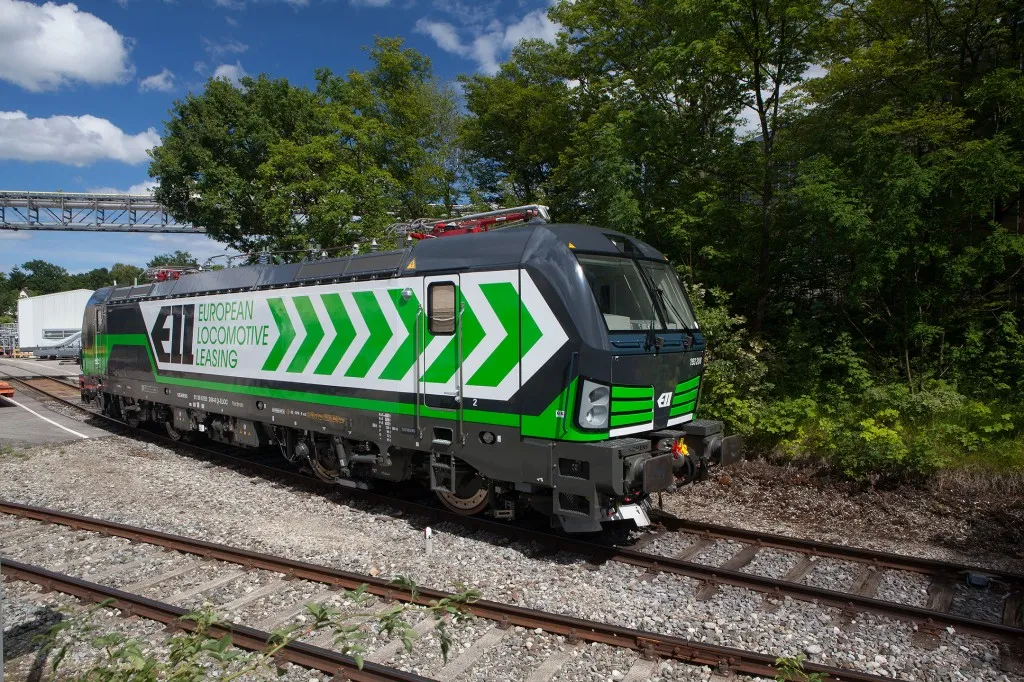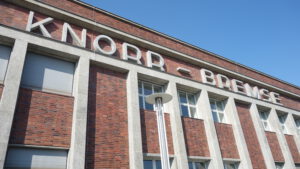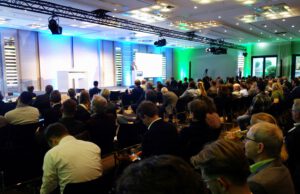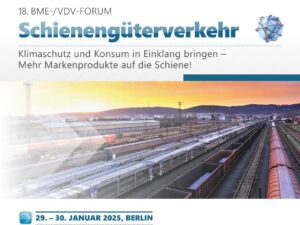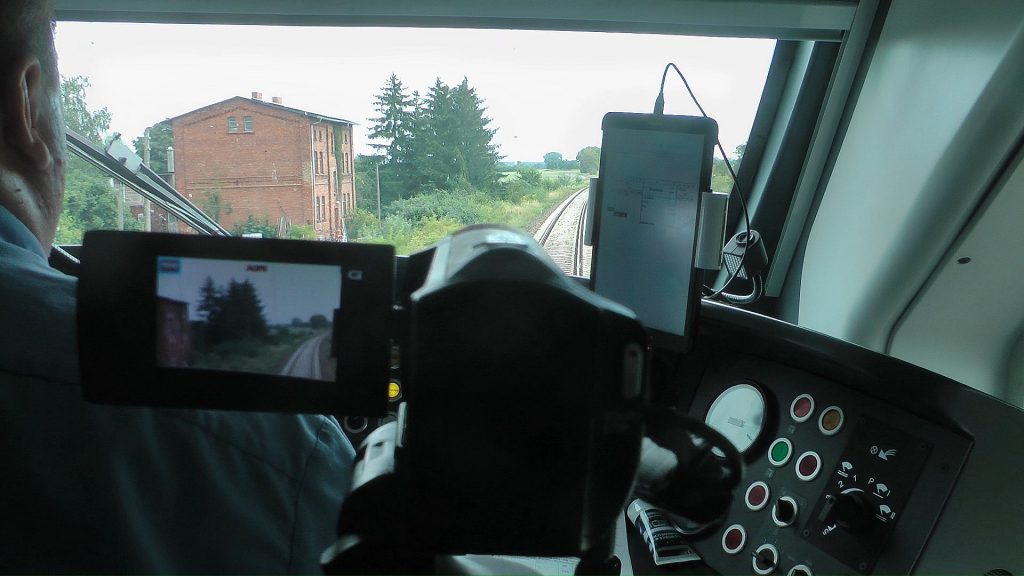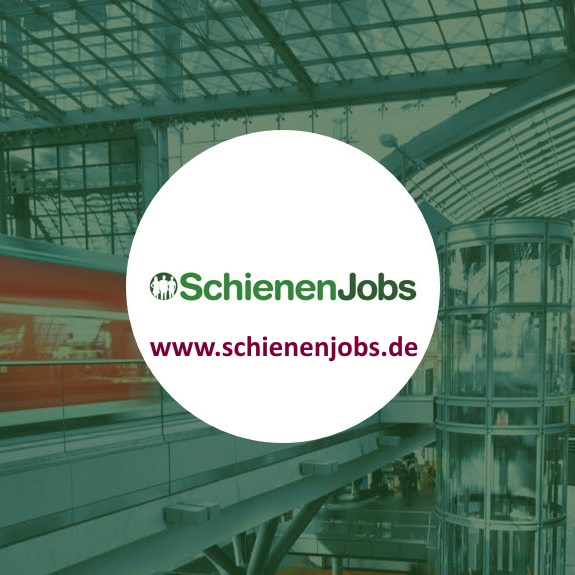A total of 60 vehicles will be ordered immediately and delivered gradually from 2025. The fourth framework agreement in total is a deepening of the long-standing partnership between the two companies ELL and Siemens Mobility: By 2027, ELL will operate at least 301 Siemens Vectron locomotives and thus the largest European Vectron fleet. In the medium term, the agreement offers the possibility of increasing the ELL fleet to more than 400 Vectrons.
| “This is a milestone in the company’s development for ELL. Our goal is to expand market leadership in the areas of customer friendliness, reliability and efficiency!” |
ELL CEO Mag. Christian Kern explained this when signing the contract.
“We are convinced of the future of the railway. Superior climate friendliness and cost-effectiveness on long international routes as well as the structural change in rail freight transport make full-service leasing of locomotives a highly attractive business for the future.
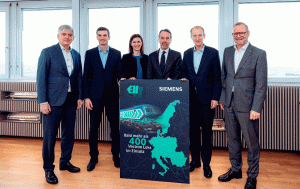
ELL pursues a consistent zero-emissions strategy. Our most important assets are a focused fleet policy and a comprehensive service network in more than 30 European locations.
The development partnership with Siemens and the concentration on a uniform locomotive type are an important building block for us to successfully assert ourselves in this market.”
Albrecht Neumann, CEO Rolling Stock of Siemens Mobility, emphasised:
| “ELL has relied on the reliability and quality of our Vectron locomotives for many years. The new framework agreement makes a further contribution to climate protection and once again underlines the performance of our locomotive platform.” |
The contract is also an extremely positive event for the Austrian Siemens branch, emphasised Tanja Kienegger, CEO Siemens Mobility Austria:
| “’Vectron’ combines sophisticated modern technology with operational flexibility and is therefore ideally suited for use throughout Europe.We intensively support committed railways like ELL in achieving their goals. In this way, we are also making a contribution to shifting more traffic from the road to environmentally friendly rail and better protecting our climate.” |
Using optional additional packages, ELL can equip the vehicles precisely and in a future-proof manner for specific requirements and special areas of application. It was agreed that Siemens Mobility will actively support ELL in further building up competence in vehicle operation, maintenance and vehicle maintenance.
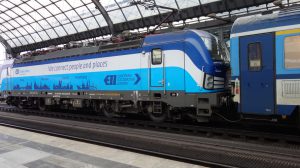
European leader Vectron
More than 2,200 locomotives from the Vectron family have already been sold to 95 customers, and a total of more than 850 million fleet kilometers have been completed. The locomotives were registered in 20 European countries. The Vectron is built in different equipment variants at the Siemens Mobility factory in Munich-Allach and was first delivered in 2012.
Shortly before the new agreement was concluded, our editorial team had the pleasure of conducting a detailed interview with the former Chancellor of the Republic of Austria and current ELL CEO Mag. Christian Kern at his headquarters in Vienna. The interviewee explained the importance of the reliability and availability of the Vectron locomotives used:
“We have customers in 16 different countries serving the major corridors and that is where the growth is also at home. We must not forget that we have actually had negative growth in international trade since the last quarter of 2022 as a result of the pandemic, and this is then manifested in freight transport, especially in the intermodal sector. Nevertheless, we managed to rent out 100 percent of our fleet because the service proposition that we offer customers is so convincing that customers say: Okay, in a crisis I will forego everything possible, but not the ELL Locomotives.”
CEO Kern further emphasised:
| “Rail freight transport is a cyclical business. We have difficult days now, but we know that it will come back at a huge pace. That was the experience of the past few years. Then there will be a massive shortage of locomotives on the market again. And we are preparing for that so that we can continue to grow with our customers here, even in the future, beyond 2025, 2026.” |
The interview will be published in our magazine rail & mobility (r&m) and in its sister publication CARGO FREIGHT JOURNAL (CFJ) in early 2024.
ELL boss Christian Kern in an interview with our magazines
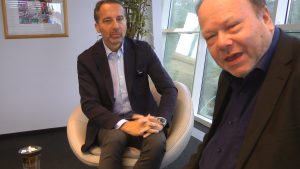
Another part of the interview has already been published. As an elder statesman of the Republic of Austria, Mag. Kern also assumes the functions of President of the European China Business Council set up by the business association CEATEC (China Europe Association for Technology and Economic Cooperation) and President of the Board of Trustees of the Austrian Chinese Business Association. The interview can be read in English in the current issue of the CARGO FREIGHT JOURNAL. The German-language version will also appear soon in r&m. In it, Mag. Kern says, among other things:
| “As far as relations with China are concerned, this is indeed a difficult relationship that is currently being discussed at various levels. But if we look around briefly, we have to say that we have the conflict with Russia, we have conflicts in the Middle East. We see that many economies are becoming more and more protectionist, if you think about India or the United States. And we in Europe have the problem that we are currently losing our business model of combining cheap raw materials from the East with highly qualified work and technology and being successful on the world markets. In this situation we obviously have to ask ourselves, can we allow ourselves another conflict?
I am convinced that this is not the case and that we would not tolerate a hostile attitude towards China because it pushes our strength and capabilities to the limits of what is still possible. And if we also see prosperity as the basis for our democracy, then I think we have a great concern to manage relations with China soberly, sensibly and with a sense of proportion. It doesn’t have to be euphoria, but hostility would certainly lead us into a ditch.” |
Magister Kern advocates a realistic, pragmatic, consensus-oriented approach to solving the important tasks that lie ahead. The railway plays an important role as an ecological means of transport:
| “We know that we will only be able to achieve our green deal goals and our strategies for saving the climate if we make traffic cleaner. This is the only sector that has shown increasing CO2 emissions in Europe since 1990. We really have a problem here. We didn’t achieve any of our goals. And I know very well that climate change is also seen as a major challenge in China. Despite all the discussion about new coal-fired power plants there, one should not overlook the fact that China is now the market leader in the areas of renewable energies, electric cars and also battery storage.
That means there are many points of contact and common interests. And we will only achieve this debate, this fight against climate change, together and not against each other. In my opinion, the railway is a crucial means of achieving this. And with that in mind, I think it would be really worth investing in these initiatives. There is interest on the Chinese side, and there is also great interest on the European side. The potential is far from being exhausted.” |
Hermann Schmidtendorf, editor-in-chief


